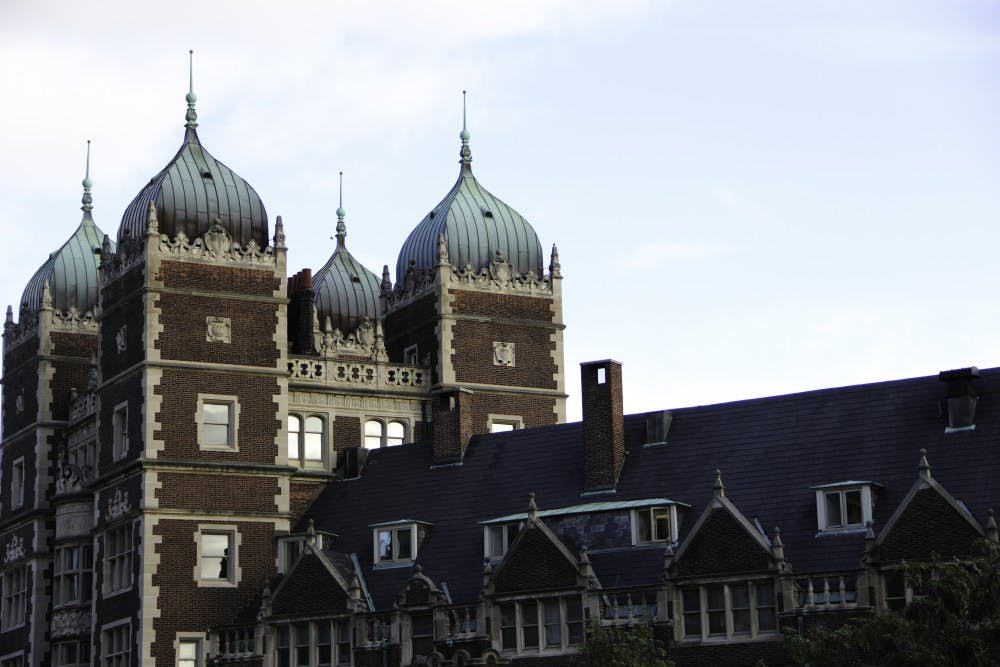
Penn professors choose to live in the College House system for a variety of reasons, whether it be providing a home for their children or further integrating themselves into campus culture.
Every student at Penn has probably shared a hall or a building with a professor or two during their time in college.
Though it might sound odd to those unfamiliar with Penn’s residential system, faculty fellows are an important part of the College House system. For the year or few years that students live on campus, they enjoy professors’ company, go to them for advice or take advantage of the occasional baked good. But for professors, their stints living on campus are much longer and more meaningful.
English professor Toni Bowers came to Penn in the early 1990’s and was immediately drawn to the College House system. A single parent, she thought it would be an ideal set-up for her and her son. They moved into Kings Court English College House which was, at the time, “a very STEM-y kind of place,” she said. “They wanted to bring in someone who could do more in the humanities in the building and make people feel welcome who weren’t in the Engineering School.”
Once there, Bowers developed a program called Perspectives in Humanities, a way to connect undergraduates with the Penn Humanities Forum, which is still quite active. Bowers also developed scholarships for residential fellowships, and helped a student at Kings Court English College House fulfill her vision of a Penn Authors Forum, where a different professor was invited each week to speak about books they had published.
Boswers’ son also loved living in a college house.
“My son grew up there and developed lots of good relationships with students,” she said.
Once he was middle-school aged, they moved to the suburbs to take advantage of better schools. Bowers still lives off-campus, and she said it has certainly changed the dynamic of her experience as a professor.
“I find now that the only students I really know are the ones in my classes,” Bowers said. “When I lived in the house, I knew a lot of students across a lot of schools.”
She also misses the “quasi-social” interactions she had with students. Bowers would take students on outings to Center City to see plays, and would even ask students to babysit.
“Students interacted with my family more than just me,” she said, adding that the two dogs she had were very popular.
Jamuna Samuel, a music professor, currently lives with her daughter in Rodin College House. She, like Bowers, finds that her eight-year-old daughter thrives in the college atmosphere.
“She loves it. She’s a very social kid,” Samuel said.
Samuel has lived in Rodin for a year and a half, and said she intends to stay for another two at least. She loves the “vibrant” community and having a “window into this generation.”
“It helps me understand more where my students are coming from, the pressure that they’re under, how involved they are extracurricularly — which I would never have understood if I didn’t live on campus.”
Samuel, like Bowers, sees herself as an ambassador for the humanities in her community. She organizes outings to the orchestra and opera for students.
Living on campus also allows Samuel to immerse herself in her own work much more completely than if she had lived off-campus.
“Especially as a working mother, working on campus has allowed me to be so much more present in my department,” Samuel said. She values the “constancy and immediacy of campus life,” but added that “maybe it’s not for everyone. Others may find it fatiguing, but I find it energizing.”
Medical Ethics and Health Policy professor Lance Wahlert lives — and teaches — in Gregory College House. He’s lived there “on and off” for the last 10 years, first as a graduate student at Penn and now as a professor. He also teaches a class called “Science of Sex and Sexuality” in its film lounge. Gregory is known for its film program, and it’s one of the reasons Wahlert has stuck around.
“I’m a film scholar, so I feel very at home here,” he said.
Unlike Bowers and Samuel, Wahlert doesn’t have any children. But he said the College House system is just as conducive to adults living alone.
“It’s great,” he said. “You’re living with others, yet living alone at the same time.”
The Daily Pennsylvanian is an independent, student-run newspaper. Please consider making a donation to support the coverage that shapes the University. Your generosity ensures a future of strong journalism at Penn.
DonatePlease note All comments are eligible for publication in The Daily Pennsylvanian.




